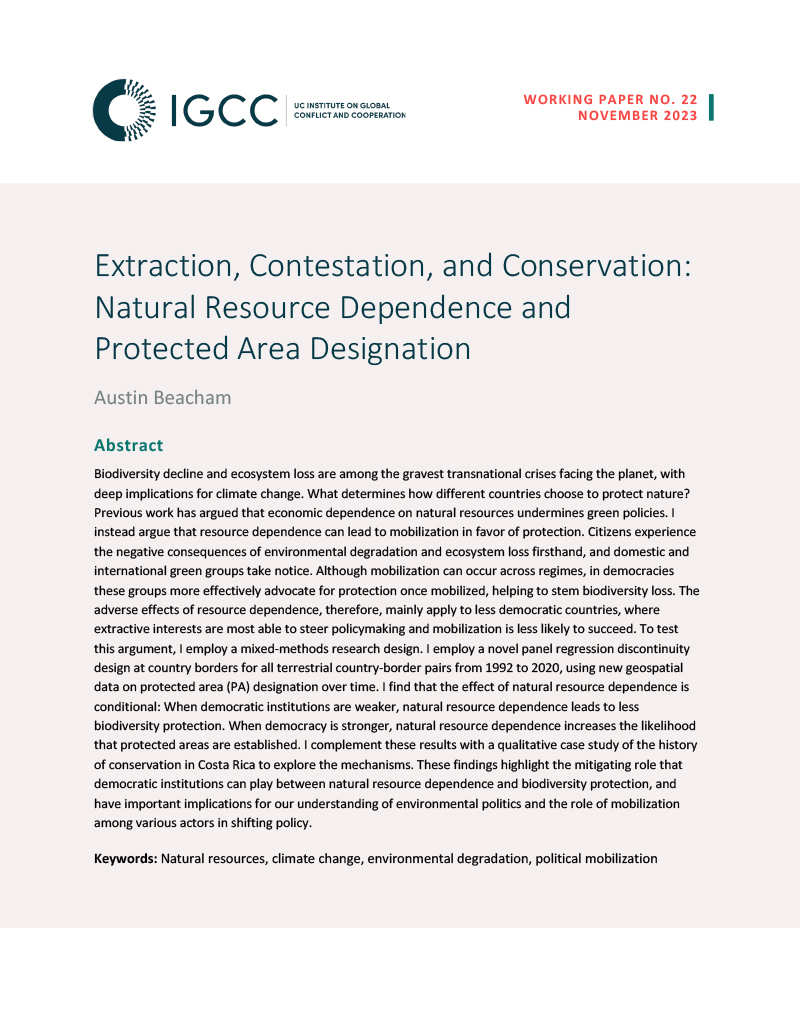Natural Resource Dependence and Environmental Mobilization

In this working paper, Austin Beacham shows that, contrary to conventional wisdom, economic dependence on natural resources can lead to citizen mobilization in favor of green policies, especially in democracies.
DownloadBiodiversity decline and ecosystem loss are among the gravest transnational crises facing the planet, with deep implications for climate change. What determines how countries choose to protect nature? In this working paper, IGCC dissertation fellow Austin Beacham shows that, contrary to conventional wisdom, economic dependence on natural resources can lead to citizen mobilization in favor of green policies that protect the environment. Citizens experience the negative consequences of environmental degradation and ecosystem loss firsthand, and domestic and international green groups take notice. Although mobilization can occur across regimes, in democracies citizen groups more effectively advocate for protection once mobilized, helping to stem biodiversity loss. The adverse effects of resource dependence, therefore, mainly apply to less democratic countries, where extractive interests are most able to steer policymaking and mobilization is less likely to succeed. The bottom line: when democratic institutions are weaker, natural resource dependence leads to less biodiversity protection. When democracy is stronger, natural resource dependence increases the likelihood that protected areas are established. Beacham complements these results with a qualitative case study of the history of conservation in Costa Rica.
Thumbnail credit: Unsplash